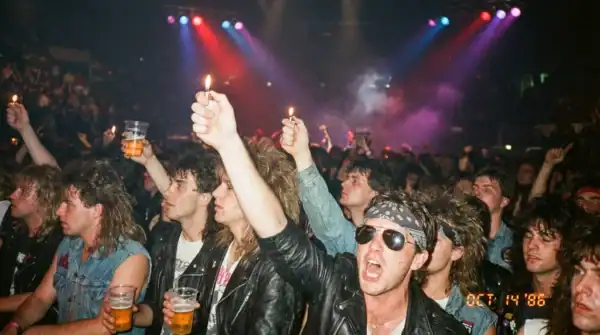
You Call That a Concert? Here’s What a Real ’80s Rock Show Looked Like
So you went to a show last year. Paid $300 for a seat so far back you needed binoculars. Watched the whole thing through
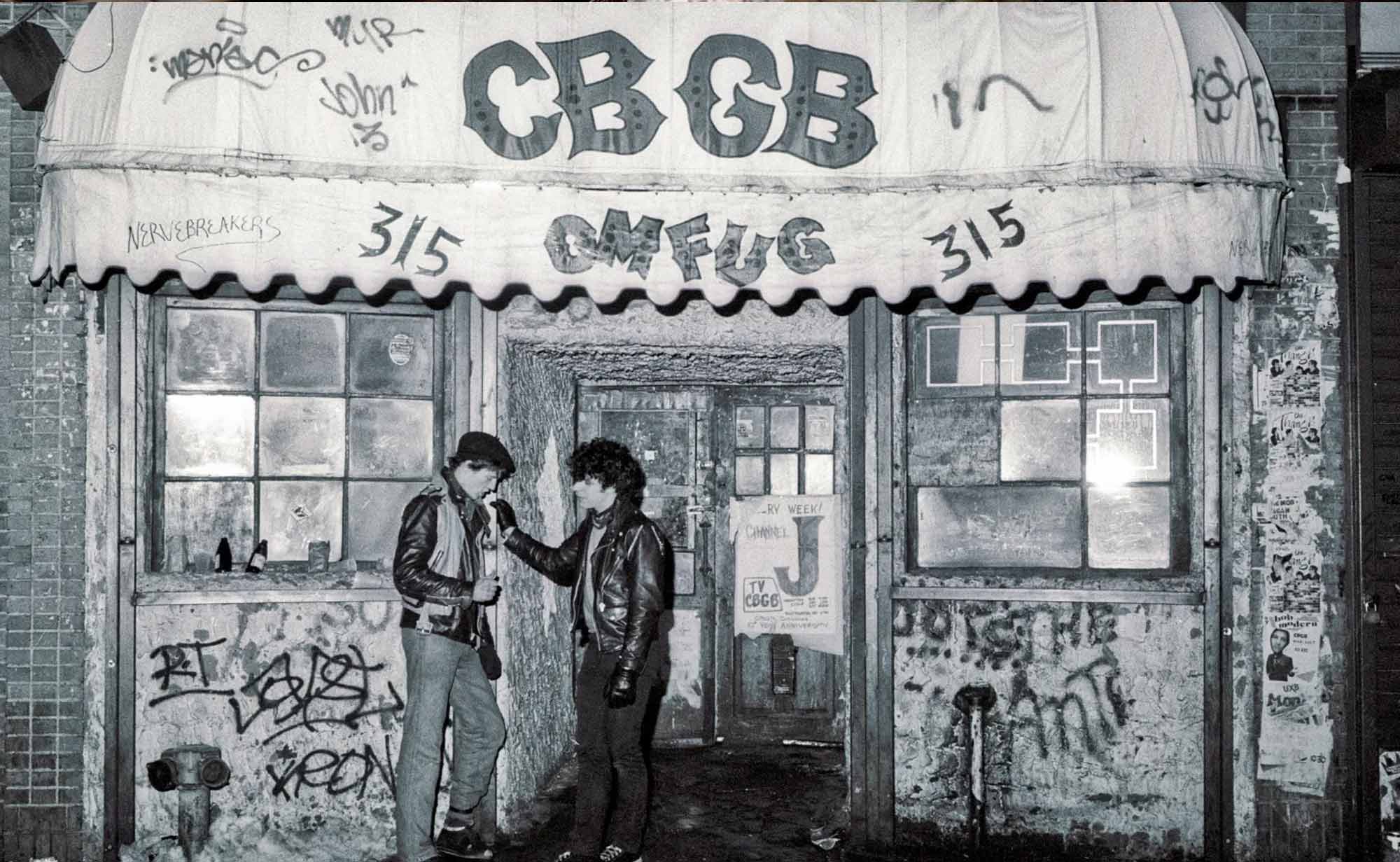
If you want to talk about the roots of punk rock in America, you can’t skip over CBGB. This unassuming little club in New York City’s Bowery neighborhood might not look like much at first glance, but it’s practically the holy ground where some of the biggest names in punk and rock cut their teeth. From The Ramones to Blondie, Talking Heads, and Patti Smith, countless legends launched their careers on that cramped stage with the famously grimy bathroom just a shout away. Think of it as a real-life superhero origin story for an entire genre of music, except instead of capes and masks, we had leather jackets, spiked hair, and a DIY ethos that shook the music world.
Most clubs aim for a swanky vibe or at least a decent coat of paint. CBGB (short for “Country, BlueGrass, and Blues”) never bothered. The place was unapologetically a dive—peeling walls, dim lighting, floors that might’ve stuck to your sneakers. But that unpolished edge was part of its charm. Founded by Hilly Kristal in 1973, CBGB’s original vision didn’t quite match what it became. Kristal wanted to showcase country, bluegrass, and blues acts, but the local music scene had other plans. Soon after opening, the club found itself at the center of a burgeoning wave of musicians who had more interest in three-chord punk chaos than fiddles and banjos. Kristal, to his credit, didn’t stand in their way. In fact, he embraced it. That’s why, in the mid-’70s, you started seeing a whole new breed of bands prowling the tiny stage, forging what we now know as the American punk movement.
You can’t talk CBGB without name-dropping The Ramones. They showed up in 1974, looking like a gang straight out of a comic book, all leather jackets and bowl-cut hair, blasting two-minute songs at breakneck speed. Critics at the time didn’t quite know what to make of them—some found them crude, others found them revolutionary. But the Ramones’ supercharged style clicked hard with the crowd, planting the seeds for a subculture that prized authenticity over technique, energy over polish. “Blitzkrieg Bop,” “I Wanna Be Your Boyfriend,” and the rest of their fast, stripped-down catalog hammered home the idea that anyone could pick up a guitar and start a band if they just had the guts. And what better place to do that than CBGB, a bar that basically said, “Come as you are, play what you want”?
Beyond Punk: Blondie, Talking Heads, and Patti Smith
Sure, CBGB was the cradle of punk rock, but that wasn’t the only sound erupting from its dingy stage. Blondie brought a sassier, more pop-infused approach to rock, splicing in elements of new wave and even early hints of disco, proving you didn’t have to scream into the mic to make an impression. Meanwhile, Talking Heads rolled in with nerdy art-rock vibes—tight, funky rhythms and a cerebral lyric style courtesy of David Byrne. And then there’s Patti Smith, who made poetry rock harder than anyone could’ve imagined, weaving bohemian philosophy with raw guitar riffs. All these artists—and more—found a home at CBGB, hooking audiences with a radical mix of punk, new wave, and artistic experimentation that resonated far beyond the Bowery.
The DIY Ethos and a New Attitude
One of the reasons CBGB mattered so much was because it embraced the “DIY” (do it yourself) spirit that defined early punk. Bands who’d never recorded a single track were welcome, as long as they brought passion and a hunger to perform. The result? You got to see the next wave of rock icons before they even knew they were icons. It wasn’t about flash or frills—just raw, unfiltered expression. Clubs in Manhattan typically had a well-oiled system with bookings, cover charges, and a certain vibe. At CBGB, you paid your dues by playing your heart out, not by greasing the right palms. This place didn’t just host a scene—it actively fueled one, giving a platform to the overlooked and the outrageous, altering the landscape of American music in a matter of years.
Iconic Grime and Memorabilia
CBGB’s reputation wasn’t just about the shows, though. The club’s aesthetic was legendary in its own right. The interior was plastered with band posters, graffiti, and stickers slapped on top of each other for decades, forming a chaotic mural of musical history. The bathrooms, man—they were basically a rite of passage for any rock fan, so notoriously filthy that they became something of a tourist attraction for those brave enough to look. People might joke about it, but that grime was part of CBGB’s essence: a physical representation of the club’s no-nonsense soul. If you were there, you were part of the chaos, adding to the living tapestry of underground rock ‘n’ roll.
The Closing Chapter
Sadly, all good things come to an end. By the mid-2000s, CBGB’s once-cheap rent in the Bowery skyrocketed, leading to disputes and eventually the club’s closure in 2006. But the legacy didn’t just vanish when the doors shut. The site has since been turned into a retail store, and the memory of CBGB is now more like a relic from another era—a time when Manhattan rent was low enough for experimental music to thrive in hidden corners. Still, the spirit lives on every time a scrappy band sets up in a basement or a tiny bar to pour out a set of raw, honest songs that might just become the next big thing.
Why It Matters Today
So why is CBGB still considered legendary? Because it was ground zero for some of the most influential voices in American rock. If you love punk—or any kind of alternative music that breaks the rules—you can trace a line back to those nights in the 1970s when unknown kids stepped on stage, giving everything they had in a divy little club on the Bowery. It wasn’t about image or corporate backing; it was pure expression, fueled by sweat and maybe a few cheap beers. That energy lit a fuse under the music industry, eventually sparking the entire punk and new wave movements. Even decades later, that rebellious attitude and do-it-yourself ethos still shape the way artists approach songwriting, stage presence, and fan engagement.
In the end, CBGB isn’t just famous for being a hot spot where big names played. It’s famous because it stood for an ideal—that real music comes from the streets, from raw emotion, and from people who care more about creating something new than fitting into a prefab box. It’s where kids with guitars and dreams realized, “Hey, we can do this, too,” and where New York’s cultural melting pot cooked up a batch of iconic rock and punk. You can still feel CBGB’s DNA in every garage band that values heart over perfection, in every indie venue that gambles on unknown acts, and in every groundbreaking album that challenges the status quo.
So if you ever find yourself humming a classic Ramones tune, swaying along to Talking Heads, or marveling at how Blondie wove pop and punk together, you’re feeling the spirit of CBGB—an unpretentious haven for musicians who wanted to shake up the world, one chord at a time. That’s why it’s famous: not for glitz or polish, but for the raw authenticity that changed American music forever.
Rock on Forever
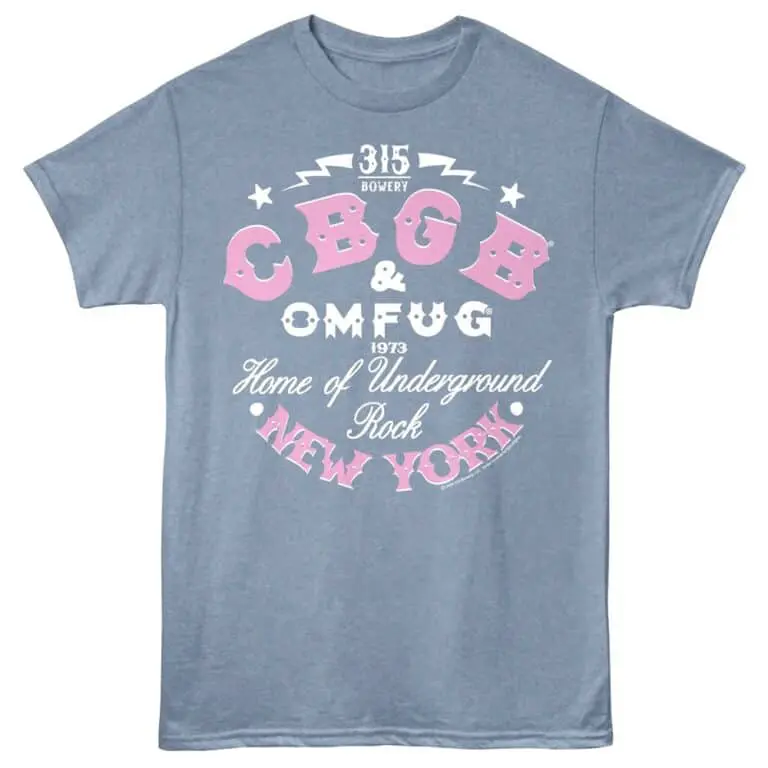
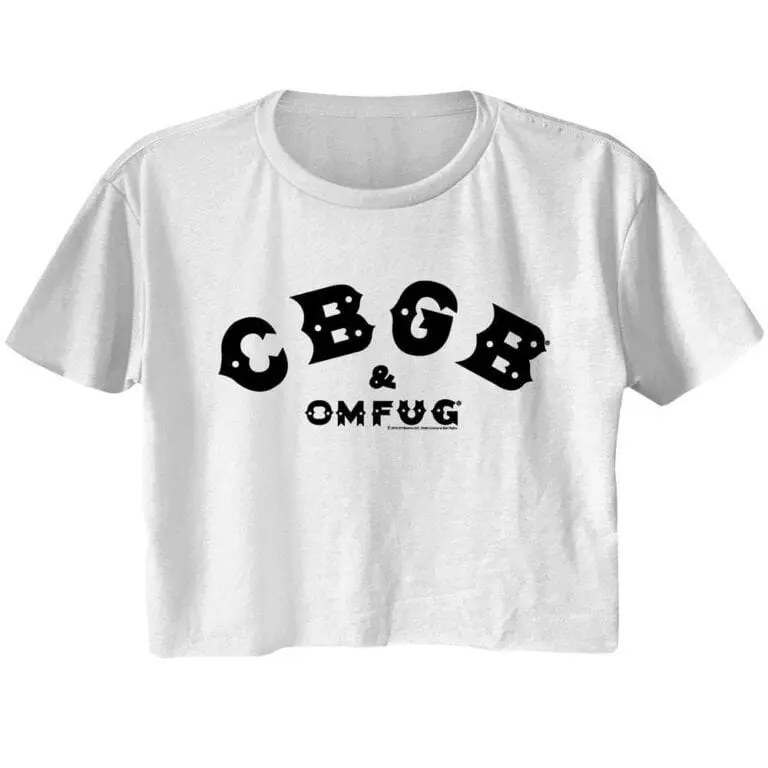
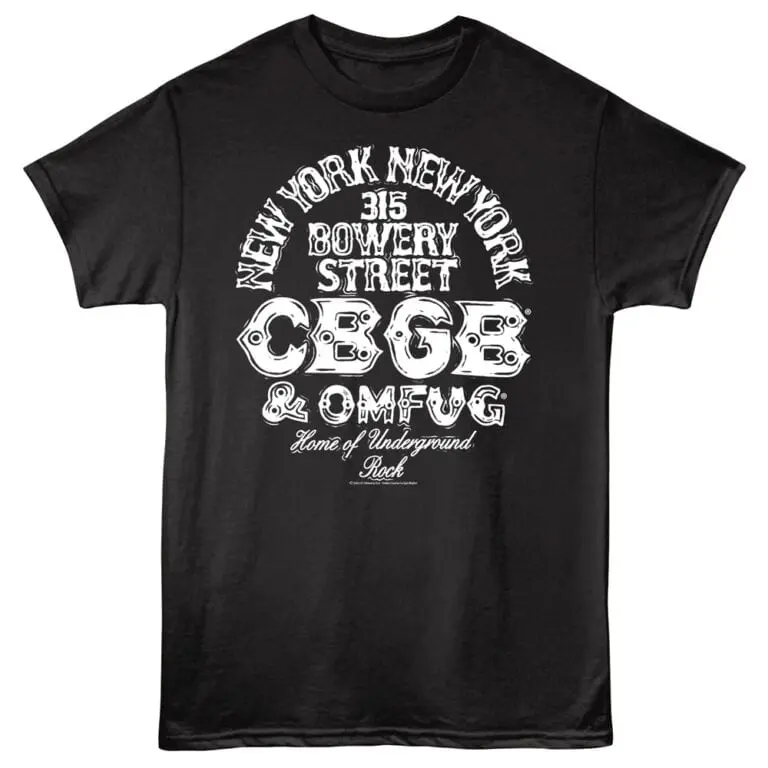
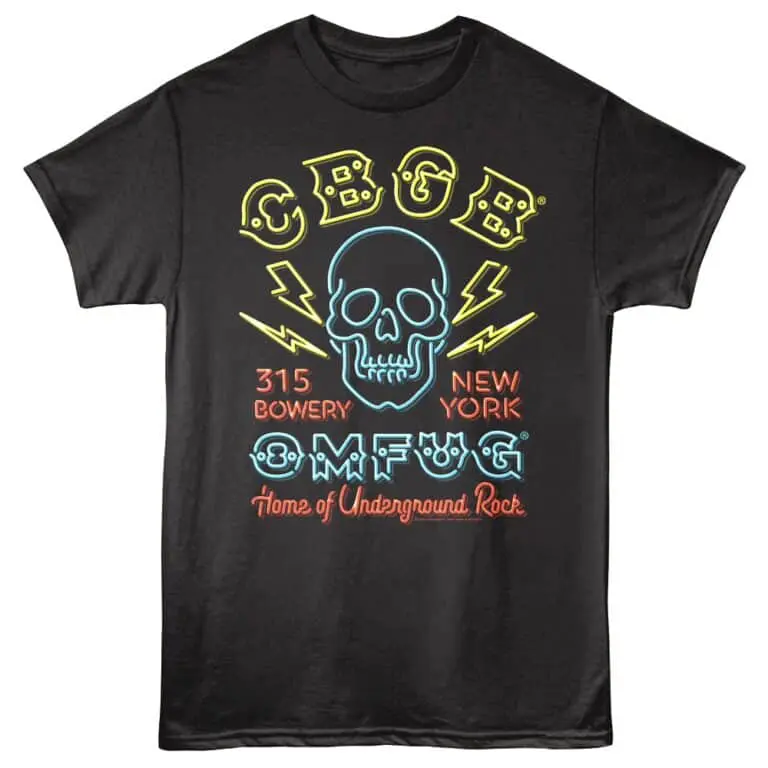
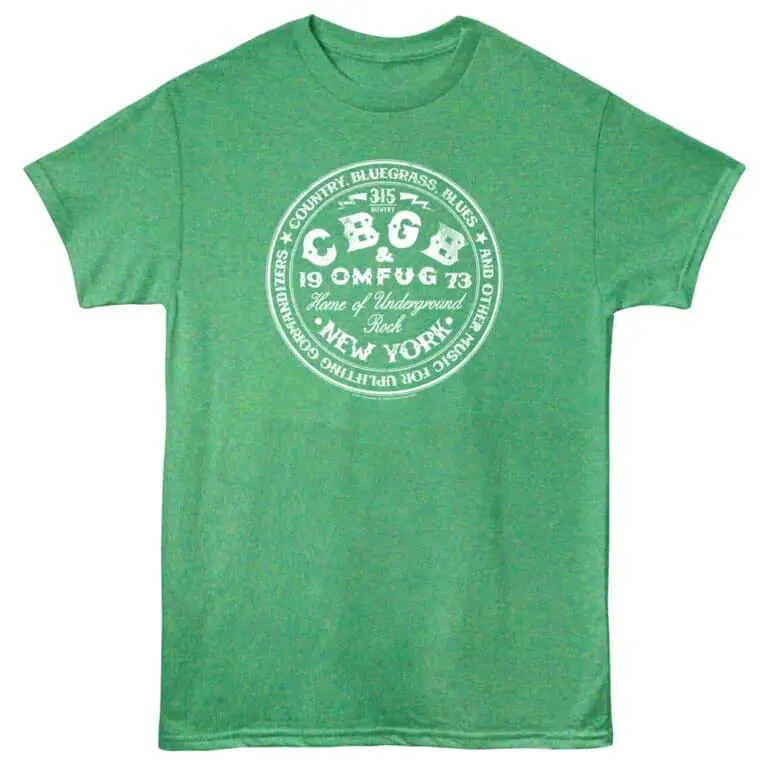
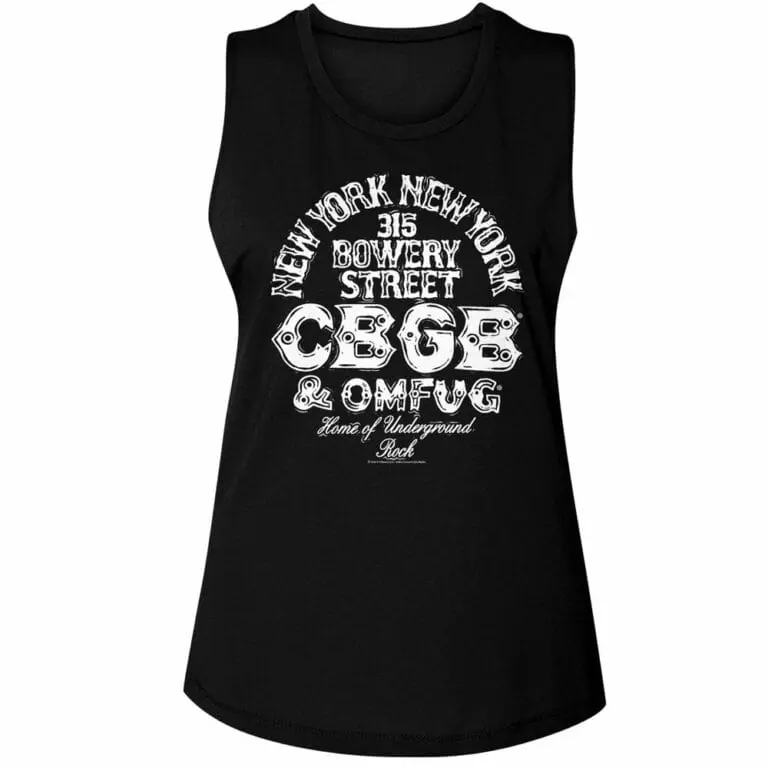
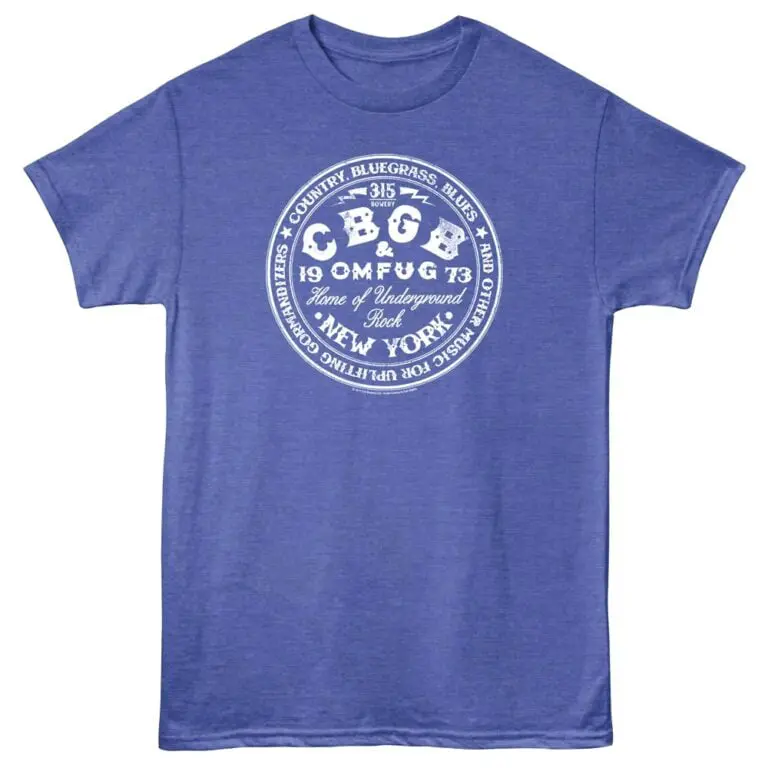
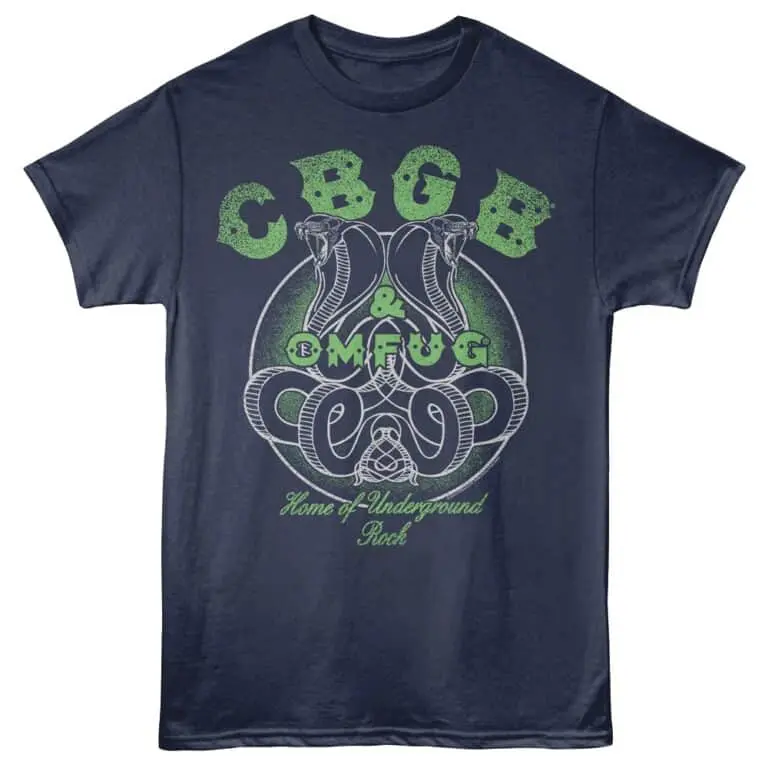
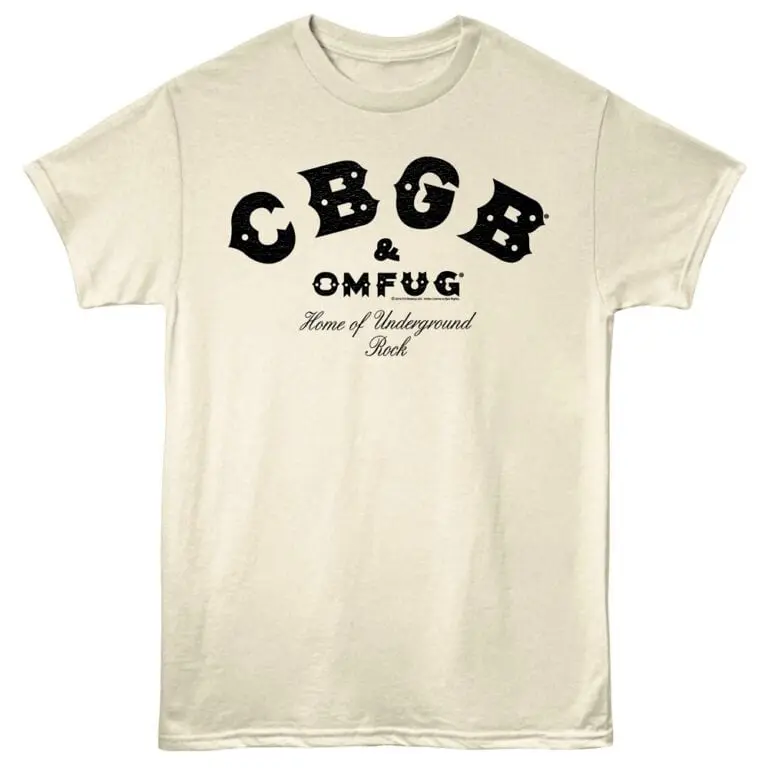
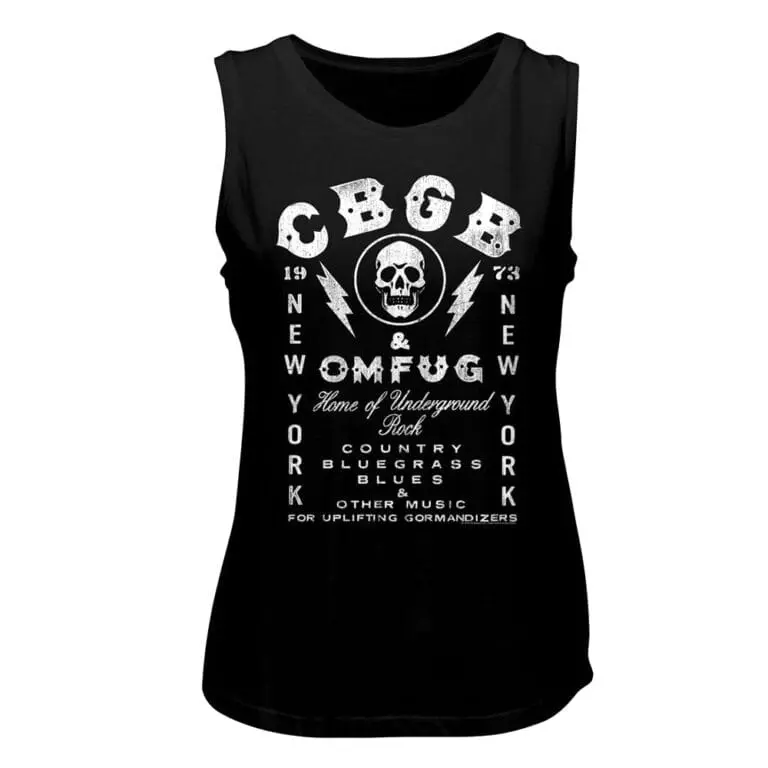
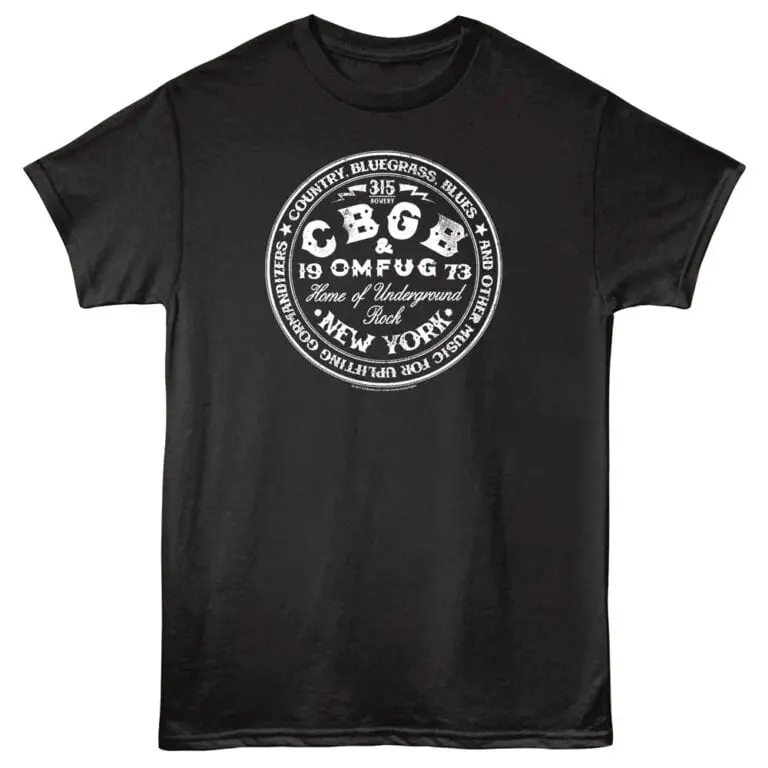
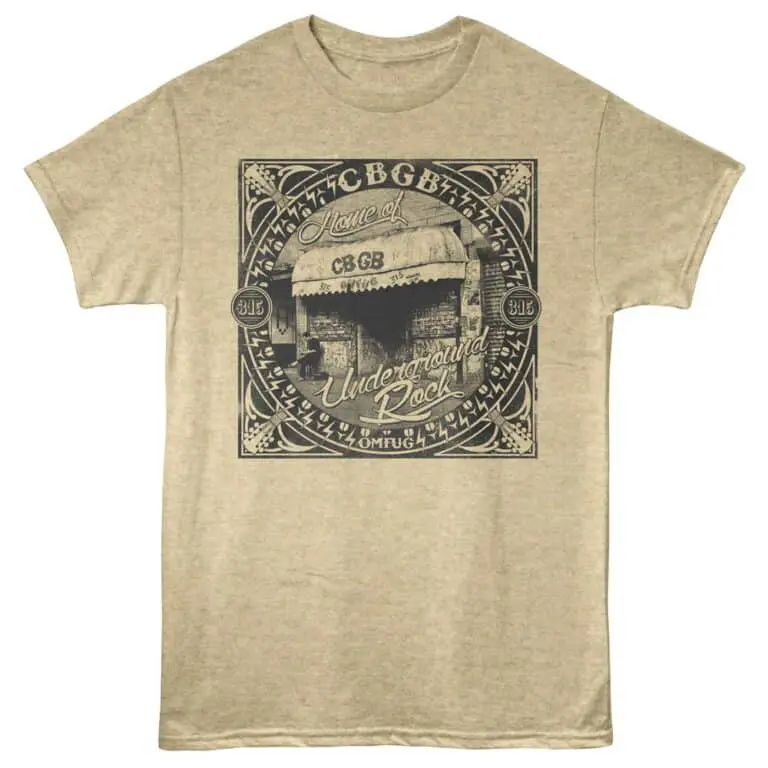
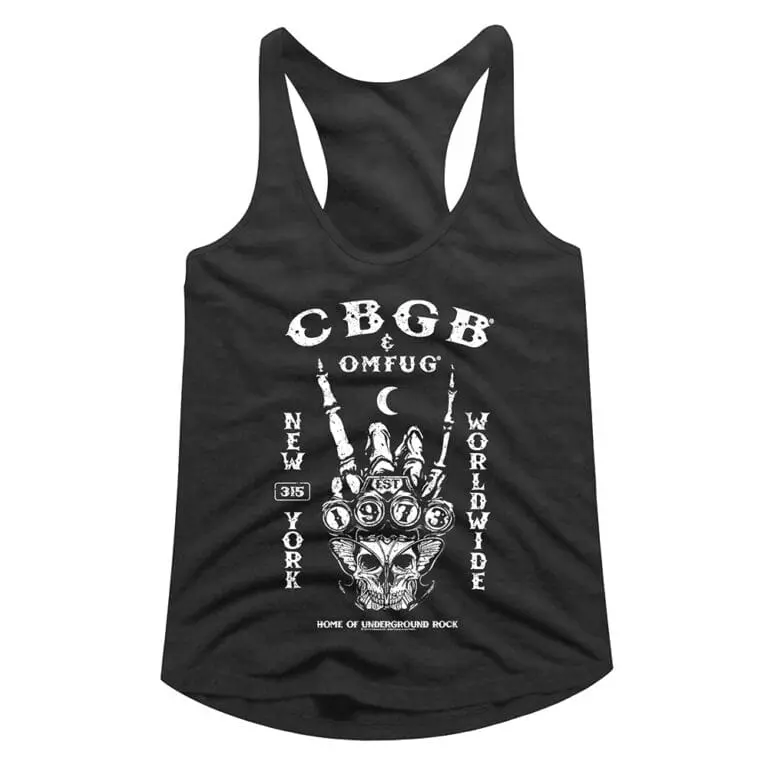
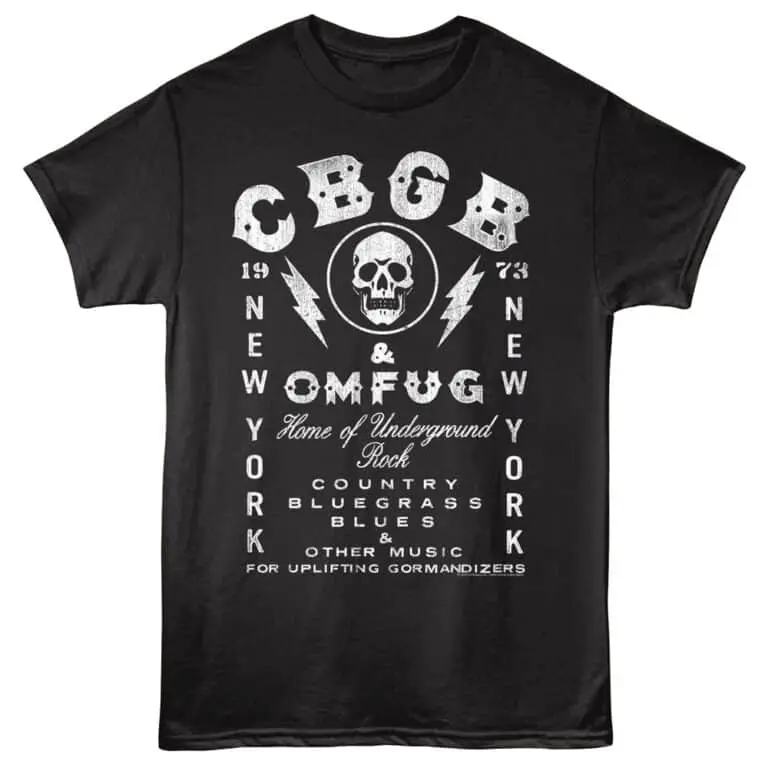
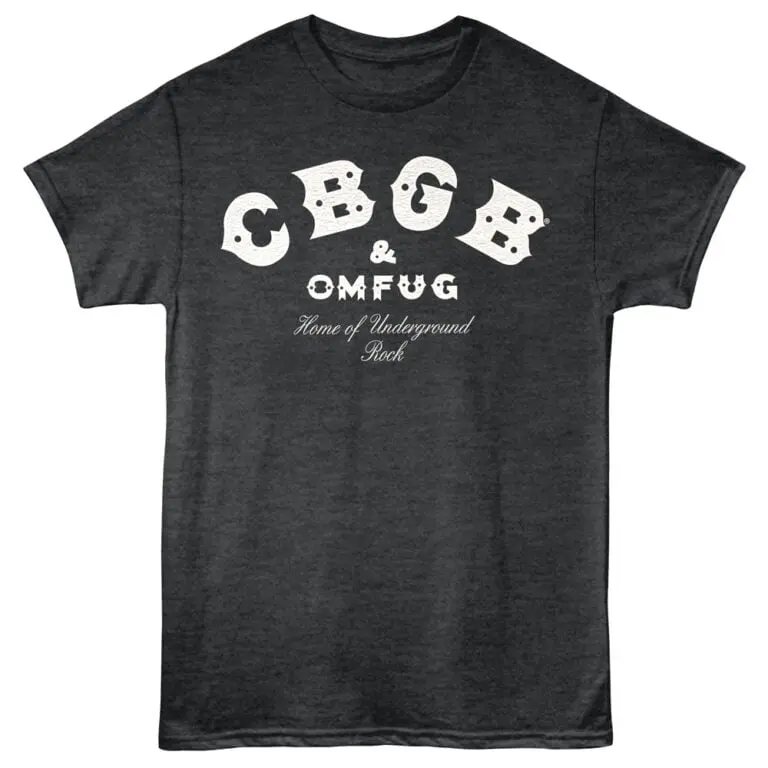
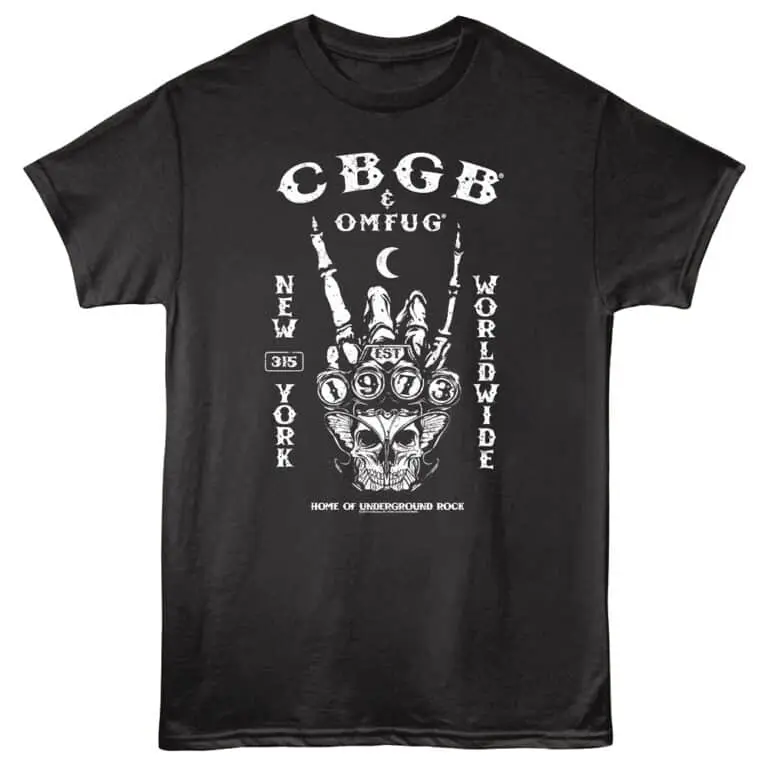
I like to write my thoughts often, some people have told me I'm funny and relatable, I will let you decide.
I give away t-shirts often, usually to people I like, or people that post photos or to just generally cool peeps! So if you like a message, write me back, I will respond
Stay Cool
Sam
Hey dude, thanks for joining my TeeMail list. I promise I will make it worth your while. And hey, if I don't you can just unsubscribe :D
Keep Rockin
Sam

So you went to a show last year. Paid $300 for a seat so far back you needed binoculars. Watched the whole thing through
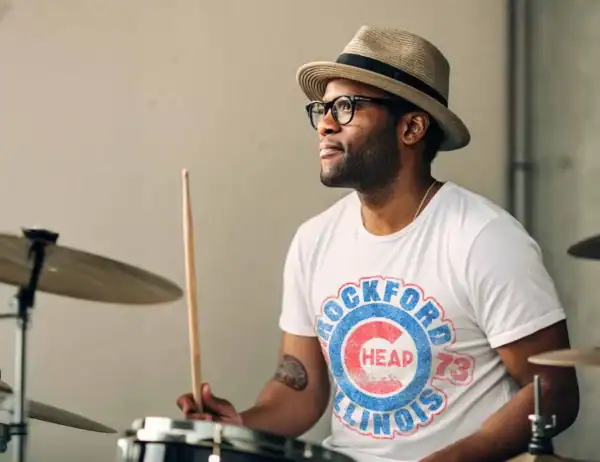
Cheap Trick has always lived in the space between classic rock and power pop. The songs were catchy without being disposable, and the image never chased trends that burned out quickly.
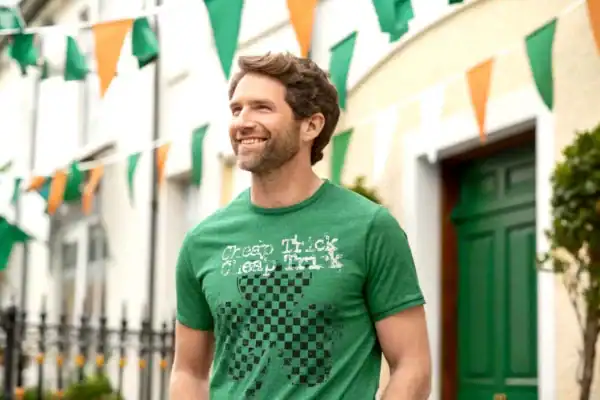
Cheap Trick’s imagery is closely tied to specific eras, albums, and moments in rock history. That kind of legacy makes the band’s merch easy to imitate, which is exactly why official licensing matters.